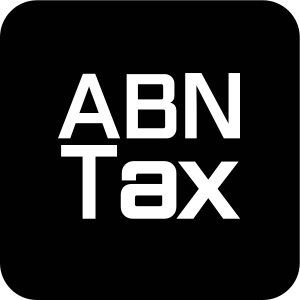The tax specialists
Investment Property
If you use your property for both private and income-producing purposes, you can only claim a deduction for the portion of any expenses that relate to the income-producing use.
Investment Property
You can claim a deduction for your rental property related expenses for the period your property is rented or is genuinely available for rent.
If you use your property for both private and income-producing purposes, you can only claim a deduction for the portion of any expenses that relate to the income-producing use.
Property rented or genuinely available for rent
You can claim a deduction for rental expenses you incur, if you use your property for income-producing purposes.
You can only claim a portion of your expenses if any of the following apply to you:
- Your property is only genuinely available for rent for part of the year.
- Your property is used for private purposes for part of the year.
- Only part of your property is used to earn rent.
- You rent your property at non-commercial rates.
- Your investment loan is partially used for private purposes.
1. When you can claim
You can claim expenses for periods when your property is either:
rented out
not rented out but is genuinely available for rent, which means
the property is advertised, giving it broad exposure to potential tenants
considering all the circumstances, tenants are reasonably likely to rent the property.
If these don't apply, it's likely that you can't claim all your expenses as you don't have a genuine intention to earn income from your property.
2. Factors that indicate genuine availability
- advertised in ways which give it broad exposure to potential tenants
- having regard to all the circumstances, tenants are reasonably likely to rent it.
- you advertise in ways that limit your exposure to potential tenants – for example, if you only advertise
- at your workplace, or by word of mouth
- outside holiday periods, so it is less likely to be rented out
- the location, condition of the property, or accessibility of the property mean it is unlikely tenants will seek to rent it
- you place unreasonable or stringent conditions on renting out the property that restrict the likelihood of the property being rented out, such as
- setting the rent above the rate of comparable properties in the area
- placing a combination of restrictions on renting out the property, such as requiring prospective tenants to provide references for short holiday stays and having conditions like no children or no pets
- you refuse to rent out the property to interested people but you don’t give adequate reasons.
All or part of your property is used to earn rent
If only part of your property is used to earn rent, you can claim only that part of your expenses that relates to the rental income. As a general guide, apportion your expenses on a floor-area basis – that is, based on the area solely occupied by the tenant, together with a reasonable figure for their access to the general living areas, including garage and outdoor areas if applicable.
Property available for part-year rental
If your property is only available to rent for part of the year, you can’t claim a deduction for the portion of any expenses that relates to your private use.
For example, if you have a holiday home or time-share unit, you can’t claim a deduction for any expenses related to those periods when you, your friends or your family used the home or unit for private purposes.
You may need to decide which expenditure is private in nature. For example, council rates paid for a full year would need to be apportioned based on the total time the property was rented out and genuinely available for rent during the year as a proportion of the total year.
However, it may not be appropriate to apportion some of your expenses on the same basis. For example, expenses that relate solely to the renting of your property are fully deductible and you would not apportion them based on the time the property was rented out. Such costs might include:
- real estate agents commissions
- costs of advertising for tenants
- phone calls you make to a tradesperson to fix damage caused by a tenant
- the cost of removing rubbish left by tenants.
FEATURED SERVICES

Business Tax
We can arrange the public liability and work cover insurance upon request.
Individual Tax
We help you to claim deductions for work-related expenses you incurred while doing your job as an employee.

SMSF
You make the investment decisions for the fund and you're held responsible for complying with the super and tax laws.

Finance

Investment Property
You can claim a deduction for your rent-related expenses for a period of rent.
Start Up Business
Get advice specific to your area before you are setting up the business.
"Strathfield Accounting team believes it is important to listen to our clients and help their tax planning. "
James Park, Head Accountant
Contact Us
- 02 8960 3270
- email : info@strathfieldaccounting.com.au
- Address : 1/56 Mosely St, Strathfield NSW 2135



